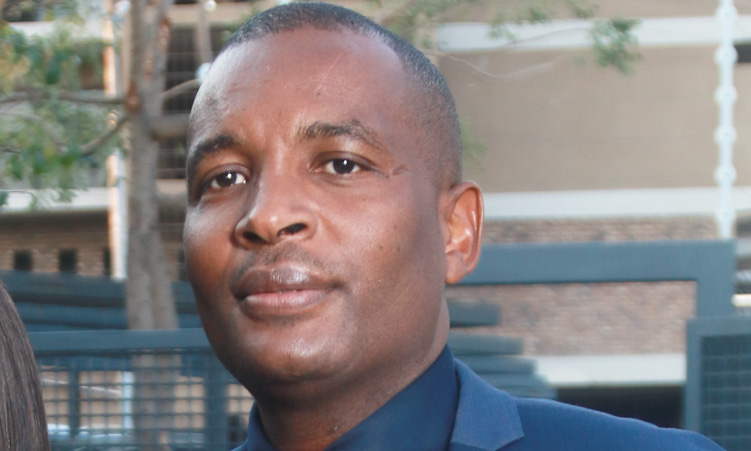THE development of the Kudu Gas Field has been fast-tracked with Tullow Oil, majority shareholder in the project, confirming that they are considering Gazprom, the Russian natural gas giant with whom Government signed a memorandum of understanding (MoU) recently, as a partner in the N$14 billion project.
Tullow Chief Operating Officer Paul McDade was quoted in The Irish Times yesterday as saying they are prepared to cooperate with Gazprom or other partners to advance Kudu.’We will be happy to work with any party that helps the commercialisation of the Kudu field,’ McDade told the newspaper in a telephonic interview.Time at Kudu is running out for Tullow.Spokesperson Martin Jackson told The Namibian that Tullow’s initial development period expires at the end of next month. However, in terms of its petroleum license, Tullow can apply for a 25-year production period, which ‘shall be’ approved by the Minister, Jackson said.Tullow’s remarks come at a time when Government’s patience with the dragging development has clearly run out. Speaking in Cape Town yesterday, Namibian Petroleum Commissioner Immanuel Mulunga said Government intends on selling Kudu’s gas exclusively if the project plans of current license holders Tullow Oil, Namcor and Itochu don’t commercialise soon.’There is definitely a new impetus… 2013 is the date (we are targeting) for first gas to be produced,’ Mulunga told Reuters on the sidelines of the African Energy Conference.If the current Kudu gas-to-power project doesn’t get off the ground soon, Government will sell the gas to raise money on royalties and taxes, he said.This is the second time in less than a month that Government threatens to take matters at Kudu, which was discovered more than 30 years ago, into its own hands.Mines and Energy Minister Erkki Nghimtina told Parliament in June that if Kudu’s shareholders can’t reach consensus on the development, Namibia should take the bold step to simply extract the gas and export it.’Currently the gas in the ground benefits no-one, but if we export it, Namibia will earn considerable income through royalties and taxes,’ he said then. More importantly, Nghimtina added, Namibia will become a gas producing country, creating lots of new jobs and even associated industries.During their visit as part of Russian President Dmitry Medvedev’s visit to Namibia two weeks ago, Gazprombank, the lending arm of Gazprom, signed an MoU with the National Petroleum Corporation of Namibia (Namcor), paving the way for the bank to finance the construction of an 800 MW power station at Walvis Bay, a pipeline and other infrastructure for Kudu to the tune of US$1,2 billion.Both Namcor and the Ministry were reluctant to tie the MoU directly to Kudu, saying that Gazprom’s involvement will still have to be negotiated with the shareholders. Gazprom, on the other hand, told the world it was a done deal.’It is quite a nice, sexy little project’, Gazprom International Chief Boris Ivanov said in Windhoek.A day afterwards, Ivanov told Reuters in Luanda that the firm was in advanced talks with Eskom to sign a power purchase agreement for the electricity to be generated at the combined cycle gas power station in the south of Namibia.Under the agreement, Eskom would use 500 MW of the power generated, while Namibia would use the remaining 300 MW.’We are at an advanced stage of talks with the South African national energy company … (the contract) will become a guarantee for financing of the project by Gazprombank and a pool of international lenders … mainly from the Middle East and in Lebanon in particular,’ Ivanov said.He said that while the company’s mandate was limited to organising the finances for now, it would also try to attract Russian contractors for the project, including Technostroiexport and Stroitransgaz.Ivanov said Kudu’s declared deposits are estimated at 45 billion cubic metres and the construction would take up to four years.’This is a pilot project … to ensure the realisation of our concept of complex exploration from gas well to kilowatts, to the final consumer. This is what we are trying to do in Russia and other countries,’ he said.jo-mare@namibian.com.na
Stay informed with The Namibian – your source for credible journalism. Get in-depth reporting and opinions for
only N$85 a month. Invest in journalism, invest in democracy –
Subscribe Now!






